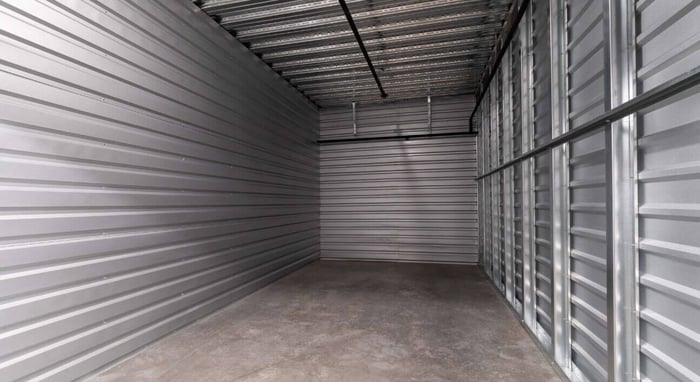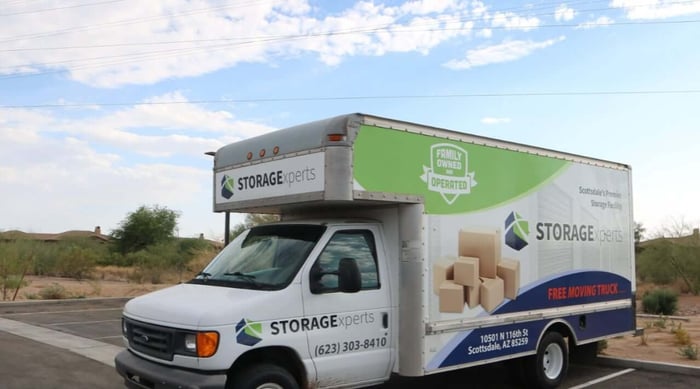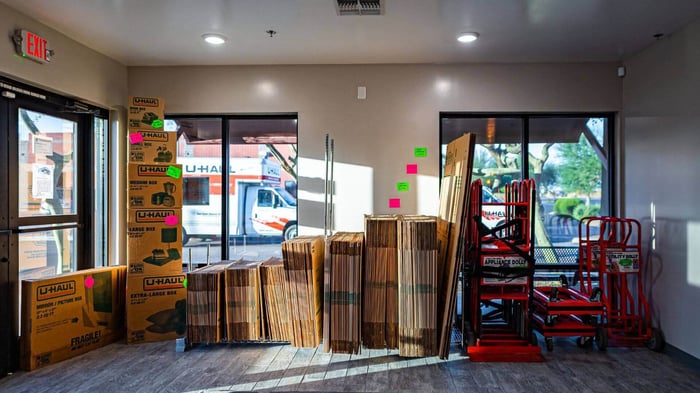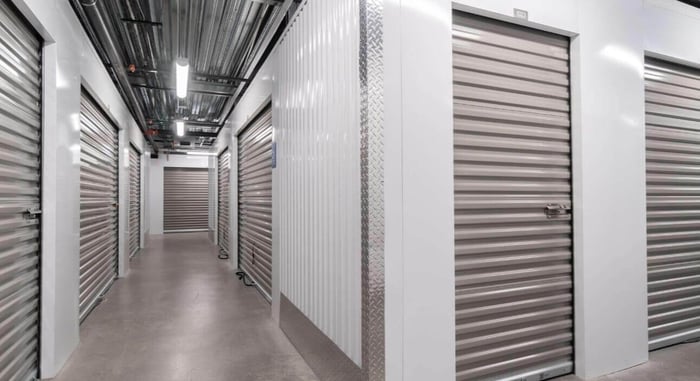In today's business environment, small companies must find creative and efficient ways to scale operations, achieve expansion, generate savings, and maximize profits. One of the smartest reasons small businesses can rely on is utilizing self-storage units. These solutions benefit people and individuals managing growing operations by offering flexible space outside of expensive office environments. Whether it's to store excess things, manage pricing more efficiently, or free up valuable workspace, a storage unit—especially in the correct location, can provide the space and support needed to succeed.
At STORAGExperts, we've seen firsthand how storage solutions help businesses thrive—particularly those navigating limited square footage, rising real estate costs, and shifting demands.
Maximizing Space Without Expanding Your Facility
Many small businesses operate in tight quarters—often from home offices, apartments, or compact commercial properties. A self-storage facility offers an ideal solution to these space constraints, giving businesses and tenants a dedicated place to store items, tools, supplies, or products. As part of a strategic guide to efficiency and profitability, self-storage can influence key factors like organization, scalability, and cost control. By freeing up workspace and reducing clutter, businesses can improve operations, increase profit margins, and ultimately boost returns on their overall investment.
Instead of renting additional commercial real estate—which often comes with high prices, long-term leases, and significant money commitments—business owners can lease units from self storage facilities for a fraction of the cost. This cost-effective strategy provides flexible storage space that supports business development without the burden of construction or relocation. It's one of the smartest tips for small businesses seeking to expand without overcommitting. By following practical steps, owners can optimize their use of property, avoid costly buildouts, and appeal to renters looking for agile solutions that adapt to changing business needs.
Reducing Operating Costs and Improving ROI
Operating costs are a primary concern for small business owners. Expenses like rent, maintenance, utilities, and insurance can eat away at revenue quickly and impact cash flow. By shifting inventory, equipment, or archives into a self storage facility, businesses can reduce the need for expensive office or building space. This not only lowers overhead but also improves space turnover, especially during busy times when flexibility matters most. A storage unit becomes a reliable source of operational efficiency, helping maintain a healthier occupancy rate within the main workspace. On average, companies save significantly by leasing a unit in a facility with ample space, often freeing up a lot of room for productivity.
The ROI (return on investment) of using storage units becomes clear when businesses factor in the lower cost per square foot, reduced overhead, and increased organization. Compared to leasing a whole warehouse, opting for a self-storage unit is a more innovative approach for maximizing flexibility and savings. Storage facilities often come with added features like climate control, security systems, and extended access hours—all at competitive rental rates. Additionally, businesses can benefit from lower repairs and maintenance responsibilities, and in some cases, there are even tax advantages to leasing storage for commercial use. Whether you're a growing startup or a family-run company, self-storage offers scalable options that support long-term success.
Providing Flexibility for Inventory and Seasonal Fluctuations
Many businesses experience fluctuations in inventory due to seasonal changes or promotional cycles. Self storage units provide the flexibility to manage these ups and downs effectively. Regardless of the number or size of items, self-storage offers an adaptable solution that supports streamlined workflows and reduces disruption. This is especially beneficial for businesses that serve customers with varying lifestyle preferences or that cater to families and multiple generations. The ability to store products, packaging, documents, or seasonal displays off-site creates room to operate more efficiently without overcrowding valuable business space.
The advantage of using self-storage lies in its combination of accessibility, affordability, and operational support. By freeing up commercial or home office space, companies benefit from increased visibility across their operations—from inventory management to customer experience. As discussed in this article, flexible storage space enables businesses in industries like fashion, decor, or e-commerce to respond quickly to market demands. The added freedom of on-demand space ensures that businesses can scale up during busy seasons and scale back during slower times without major overhead adjustments.
Supporting Real Estate Investments and Long-Term Growth
Real estate investors and small business owners alike recognize the value of tangible estate-based assets. Self-storage facilities represent an investment in stability and scalability. Businesses can use storage units as a stepping stone before committing to larger, more permanent commercial properties.
In addition, small businesses looking to build long-term rental income can even explore investing in self-storage units themselves. With increasing population density, growing demand, and limited affordable space, self-storage presents a profitable opportunity for real estate investors and business owners alike.
Enhancing Security and Protecting Valuable Items
Security is a top priority for businesses of all sizes. From expensive tools to confidential documents, business assets require strong protection. So, are storage units safe? Yes, most modern self-storage facilities are equipped with advanced security measures that ensure high levels of protection for stored items.
These security measures typically include 24/7 video surveillance systems, gated entries with keypad or card access, motion-activated lights, on-site security staff, individually locked units, and alarmed doors. Some facilities even offer biometric scanners and unique access codes for added layers of safety.
These multiple layers of protection give business owners peace of mind, knowing their belongings, inventories, and equipment are safe—without the high costs of private security or premium insurance upgrades. At STORAGExperts, our facilities are designed with business-grade security to keep your assets safe at all times.
Improving Business Efficiency Through Organization
Cluttered work environments slow down productivity and increase stress among team members. By relocating seldom-used or bulky items into a storage unit, small businesses can streamline their operations and maintain a cleaner, more professional environment.
Knowing how to organize a storage unit is key to making the most of this extra space. When arranged strategically—with shelving, labels, and categorized sections—storage units become an efficient extension of the workplace. This level of organization improves overall workflow, enhances team efficiency, and simplifies essential processes like inventory tracking, order fulfillment, and customer service.
Supporting Remote Work and Home-Based Businesses
With remote work and home-based businesses on the rise, storage has become even more critical. Professionals working from apartments or homes often struggle with limited space and excess items.
A self-storage unit helps maintain work-life balance by relocating work-related clutter. It also serves as a secondary office or distribution center—especially for entrepreneurs in logistics, dropshipping, or online retail.
Meeting Industry-Specific Needs with Customized Solutions
Different industries require different types of storage. For example:
- Retailers benefit from storing seasonal products and display materials.
- Contractors can keep tools, materials, and equipment secure.
- Real estate agents use storage for staging items and signage.
- Photographers or artists need a place for props, equipment, or framed work.
- Medical professionals may need space for archived documents or equipment.
Self-storage facilities cater to these specific business needs with features like climate control, drive-up access, flexible leases, and scalable unit sizes.
Increasing Accessibility While Maintaining Low Costs
Accessibility is essential for business success. Most storage units offer 24/7 or extended-hour access, allowing business owners and staff to retrieve items at their convenience. Many facilities are strategically located in urban and suburban areas, close to population centers and major roadways.
Compared to traditional warehouses or commercial facilities, storage units deliver unbeatable accessibility and convenience—without the long-term commitment or high monthly rent.
Leveraging Self-Storage for Marketing and Operations
Beyond physical items, self-storage supports broader business strategies. For example, you can:
- Store branded materials for trade shows and events
- Archive customer records and documents to stay compliant
- Manage incoming product shipments
- Operate a small fulfillment pipeline for e-commerce
Using storage this way allows businesses to maintain a high level of professionalism and readiness while freeing up internal space for operations, marketing, and customer engagement.
Capitalizing on Scalability and Growth Opportunities
One of the most significant advantages of self-storage is scalability. As your business grows, so can your storage. Start with a small unit and move up as needed—without worrying about breaking leases or relocating to new offices.
This scalability makes it easier for businesses to take calculated risks, enter new markets, and expand product lines without committing to expensive infrastructure.
Attracting Investors Through Smart, Cost-Effective Strategies
Investors value innovative, scalable, and profitable business strategies. Using self storage is a cost-effective way to improve ROI, reduce risk, and demonstrate efficiency. Whether you're seeking capital or preparing for long-term growth, the use of self-storage highlights your ability to manage operations and allocate resources wisely.
For real estate investors, the self-storage industry itself is a lucrative market. REITs (Real Estate Investment Trusts) focused on self-storage show consistent growth, stability, and strong occupancy rates.
Combining Storage Solutions with Professional Services
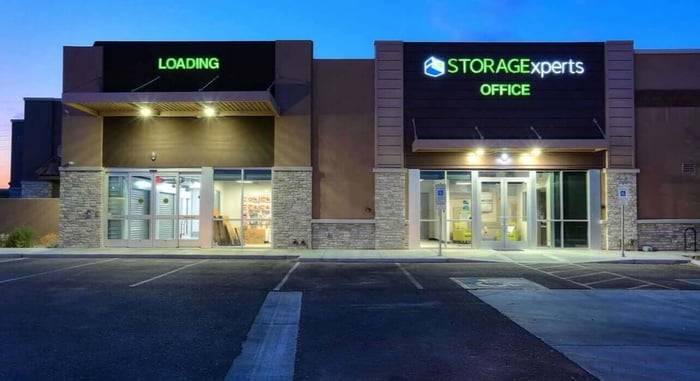
In Scottsdale, AZ, STORAGExperts offers reliable self-storage solutions that help small businesses expand without high overhead.
Many storage facilities offer additional services, including moving supplies, boxes, packaging materials, and even logistics assistance. This allows small businesses to run more smoothly and reduce expenses by consolidating storage, shipping, and distribution functions under one roof.
STORAGExperts offers packages that combine affordability, flexibility, and support—perfect for businesses managing transitions, growth phases, or relocations.
Self-Storage as a Long-Term Business Strategy
More than a temporary fix, self-storage represents a long-term business strategy. It contributes to better organization, lower costs, higher flexibility, and greater profitability. Whether your goal is to expand operations, optimize inventory, or create more space for your team and customers, self-storage plays a crucial role in modern business success.
How STORAGExperts Helps Small Businesses Succeed
At STORAGExperts, we specialize in providing self-storage solutions tailored to business needs. Our facilities in prime locations offer features like:
- 24/7 access and top-tier security
- Flexible lease terms
- Climate-controlled units
- Various sizes to suit all industries
- Professional support and customer service
We understand the challenges small businesses face and provide storage options that align with your budget, operations, and goals.
Final Thoughts: Storage Is More Than Just Space—It's Strategy
Innovative businesses don't just store—they strategize. A self storage unit is more than a place for excess items; it's an extension of your office, a cost-saving tool, and a growth accelerator. Whether you're a startup, a growing team, or a seasoned business, the benefits of self-storage—from reduced operating costs to improved ROI—are hard to ignore.
With proper planning, organization, and support from professionals like STORAGExperts, storage becomes an investment—not an expense.
Frequently Asked Questions
Frequently Asked Questions About Business Self-Storage
1. What types of businesses benefit most from self-storage?
Self-storage is ideal for a wide range of businesses, including retail, e-commerce, event planning, real estate, contracting, and professional services. These businesses often deal with fluctuating inventory, equipment, or seasonal items. Freelancers and startups working from home can also benefit by freeing up valuable living or working space.
2. How do I choose the proper storage unit size for my business?
Start by taking inventory of what you'll be storing. A 5x10 unit is great for boxes and small equipment, while a 10x20 may suit larger items or bulk inventory. If you're unsure, consult with storage facility staff—they can guide you based on your specific needs and growth expectations.
3. Can I run part of my business out of a storage unit?
In most cases, you cannot operate a business directly from a storage unit (e.g., serving customers on-site). However, you can use the unit as a fulfillment center, storage hub, or distribution point. Always check with local zoning laws and ask the facility manager about what's permitted on-site.
4. Are there insurance requirements for storing business assets?
Yes. While most facilities are secure, it's recommended that businesses carry their own insurance policies to cover stored assets. Some providers may require proof of insurance upon rental or offer coverage as part of your lease for an additional fee.
5. What legal or zoning issues should I be aware of with commercial storage use?
Zoning laws vary by city and facility. You're generally allowed to store business assets but not conduct retail functions or manufacture products in the unit. It's best to consult local ordinances or ask your facility for location-specific guidelines.
6. What happens if I miss a payment on my storage unit lease?
Most storage providers offer a short grace period for missed payments. If payment isn't received after that window, late fees may apply, and eventually, your unit could be locked or auctioned. Tenants are usually notified well in advance to avoid these outcomes.
7. Can self-storage units support cold or temperature-sensitive storage needs?
Yes. Many facilities offer climate-controlled units that maintain steady temperature and humidity—ideal for electronics, documents, cosmetics, artwork, or other sensitive products. Be sure to inquire about availability when reserving your space.
8. How can I optimize my storage unit for inventory management?
Use shelving to take advantage of vertical space and label all boxes or containers clearly. A basic inventory system (even a spreadsheet) helps track what’s inside. Consider using clear bins and installing lighting for better visibility and access.
9. Is long-term storage more cost-effective than short-term leasing?
Often, yes. Long-term contracts may include discounted pricing or incentives such as free months or unit upgrades. However, many facilities also offer flexible month-to-month options if your business needs are subject to change.
10. Are there tax deductions for using self-storage for business purposes?
Yes, self-storage used exclusively for business can typically be deducted as a business expense. This includes rent, insurance, and any related fees. Always keep receipts and consult with your accountant to ensure proper documentation and IRS compliance.

